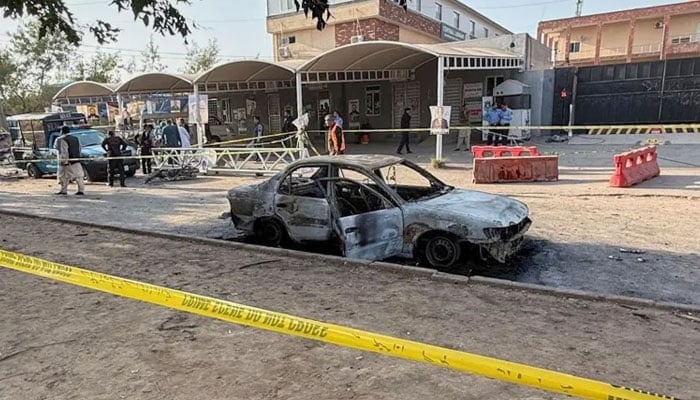A critical breakthrough has been achieved in the investigation into the devastating suicide attack outside the Judicial Complex in Islamabad. Interrogations of the arrested facilitator and handler of the suicide bomber have unearthed a shocking, previously unknown attempt at a major act of terror.
According to sources close to the investigation, the suicide bomber had initially planned to target the crucial Faizabad checkpoint (Naka) in the federal capital before the deadly November 11 attack on the Judicial Complex. The bomber reportedly reached the Faizabad location ready to strike, but failed to execute the blast at the critical moment.
Investigative officials revealed that the bomber was unable to pull the safety pin of the explosive device, a mechanical failure that narrowly averted a potential tragedy at a high-traffic security point. Following this failure, the suspect retreated back towards Rawalpindi. This subsequent failure ultimately led to the shifting of the target to the Judicial Complex.
The suicide blast on November 11 at the Judicial Complex resulted in the martyrdom of 12 individuals and left 36 people wounded, sending a wave of shock and grief across the nation. Investigations further confirmed that the catastrophic attack was meticulously planned under the direct instructions of the high command of a militant organization operating from Afghanistan, underscoring the serious cross-border threat facing the country.



